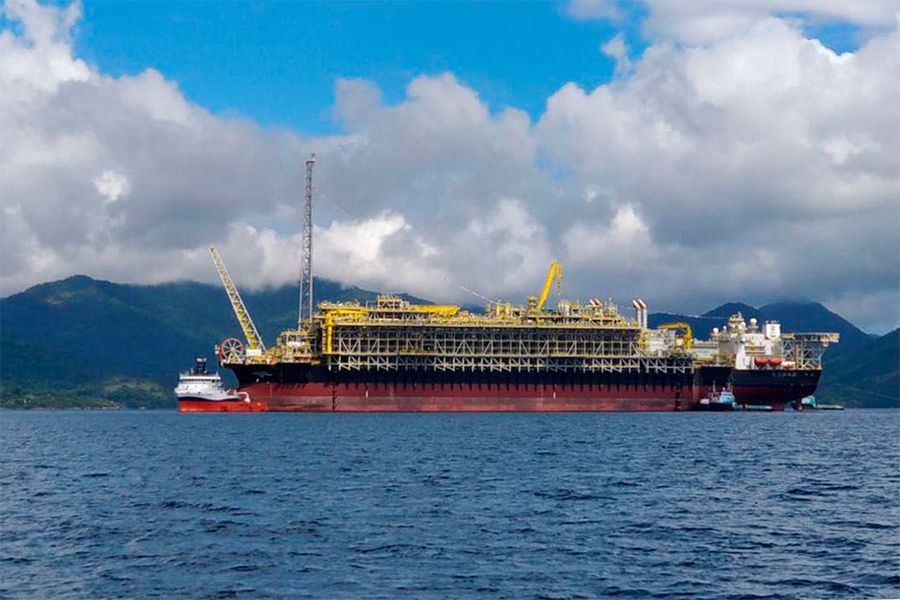
(Argus, 11.Jun.2020) — Brazil’s state-owned pre-salt marketing firm PPSA took around 17pc of crude from three production-sharing contracts in April, according to monthly data published by the firm for the first time.
The company’s share of the 56,000 b/d of gross pre-salt production from the Mero, Etorno de Sapinhoa and Southeast Tartaruga Verde fields was around 10,000 b/d, a slight drop from the March volume of 11,500 b/d, or around 18pc of the total.
PPSA, which represents the federal government in production-sharing agreements that govern pre-salt acreage, currently markets its share of 29°API Mero and 30°API Sapinhoa crude through supply contracts with state-controlled Petrobras, which operates the fields.
The three-year supply contracts, which were awarded in 2018, are pegged to a market reference price established by hydrocarbons regulator ANP.
PPSA raised around R469mn ($115mn) for the federal government from the sale of 2.6mn bl of pre-salt crude in 2019.
No supply contract is currently in place for 27°API Tartaruga Verde crude, with PPSA’s share of production currently being tallied ahead of an equalization contract covering past production and costs with Petrobras, the sole owner of the deposit.
PPSA is entitled to 41.65pc of the profit oil—total production less approved costs—at Mero. For Sapinhoa and Tartaruga Verde, which were subject to recent unitization agreements, PPSA receives 80pc and 10.1pc, respectively.
PPSA’s share of total Mero and Tartaruga Verde production has remained stable at around 15pc since 2019. The percentage of Sapinhoa production has fluctuated between less than 1pc in May 2019 to around 59pc in April of this year.
Petrobras operates Mero with a 40pc stake. Shell and Total each hold 20pc, the remaining 20pc is split evenly between Chinese state-owned firms CNOOC and CNPC.
Petrobras operates Sapinhoa with a 45pc stake, Shell holds 30pc and Repsol Sinopec the remaining 25pc.
Established in 2013, PPSA is a non-equity partner in all of Brazil’s 17 production-sharing contracts it manages, most still in the exploration phase. The firm is responsible for auditing development costs, over which it has veto rights, and marketing the government’s share of crude.
But the firm’s future is uncertain amid renewed doubts about efficacy of the PSC model in Brazil. Foreign oil company executives say a switch to the industry-preferred concession model is necessary to successfully compete for a more limited investment pool.
__________
By Nathan Walters

